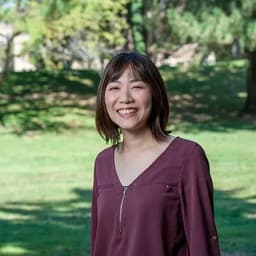

In many casual restaurants across Japan, especially ramen shops and beef bowl chains, you order by purchasing a meal ticket from a vending machine before you sit down. These machines typically accept cash, and you often need to insert the money before selecting a dish. Some machines don’t accept large bills, so if you need change, you can say “りょうがえおねがいします (Ryōgae onegaishimasu),” which means “Can you break this bill?” The layout is often simple, with buttons labeled with dish names, prices, and sometimes photos. Newer machines may feature touchscreens with multiple languages. The top-left button often indicates the shop’s recommended item, marked with words like “osusume” or “ninki.”
Once you have your meal ticket, the process depends on the shop. In some places, you hand the ticket to the staff right away. In others, you wait for your number to be called. After you eat, it’s polite to return your tray or place your dishes neatly on the counter if it’s a self-service restaurant. Following what others around you do is usually the best approach.
At ramen shops, staff may ask you how you want your noodles. A common question is “かたさはどうしますか (Katasa wa dō shimasu ka)?” meaning “How firm would you like your noodles?” If you want them normal, you can say “ふつうでおねがいします (Futsuu de onegaishimasu).” Other options include “katame” for firm noodles and “yawarakame” for soft. This sentence pattern is useful for other preferences too, such as the richness of soup or amount of oil.
The same format can be used to make more detailed requests. For example, you can say “Koime de onegaishimasu” (Please make it rich in flavor) or “Usume de onegaishimasu” (Please make it lighter) when customizing food or soup. If you want more or less of something, use “Ōme” (more) or “Sukuname” (less). You can also tell the staff whether you want to split the bill or pay together by saying “Betsu-betsu de onegaishimasu” (We’ll pay separately) or “Issho de onegaishimasu” (We’ll pay together).
If you have allergies or food restrictions, you can say “〇〇アレルギーです (arerugī desu)” or “〇〇 たべられません (taberaremasen)” to explain what you cannot eat. When you finish your meal, it’s common to say “ごちそうさまでした (Gochisōsama deshita)” as a polite expression of thanks. Other useful phrases include “おいしかったです (Oishikatta desu)” to say it was delicious, or “レシートをください (Reshīto o kudasai)” when asking for a receipt.
Japanese restaurants often provide small but important items on the table. For example, an oshibori is a wet towel offered before meals. Shichimi togarashi is a spicy pepper blend used in noodle dishes. Gari is pickled ginger found at sushi restaurants. You may also see chopstick rests, soy sauce varieties, and toothpicks. Understanding these items enhances your dining experience and helps you fit in with local customs.
When you encounter a dish or item you don’t recognize, you can ask “これはなんですか (Kore wa nan desu ka)?” meaning “What is this?” This question is especially helpful at sushi restaurants or when exploring new foods. You can also use the related pattern “この〇〇はなんですか (Kono 〇〇 wa nan desu ka)?” when pointing to a specific food item like fish, vegetables, or drinks.
At kaitenzushi, or conveyor belt sushi restaurants, not all plates spin anymore. Many places now offer touchscreen menus for direct ordering, and your sushi may be delivered via a special lane. This change improves hygiene and reduces food waste. When ordering sushi, you can also ask for condiments or specific preparations, such as “Wasabi nuki de onegaishimasu” to request no wasabi.

gokigen japanese is an online Japanese tutoring service launched in 2023. Flexible, interactive, and culture-rich, gokigen japanese supports learners at all levels with bilingual Japanese tutors. Over 1,000 students from 30+ countries have used our 300+ original materials, including grammar guides and cultural content. gokigen japanese was founded by Hirofumi Naramura, a Kyoto University graduate and former Project Leader at the Boston Consulting Group (2010–2020). The service has received recognition such as the Chiyoda CULTURE x TECH Award 2024 and acceptance into NEXs Tokyo, a startup program by the Tokyo Metropolitan Government.

Japanese language educator with over 15 years of experience in higher education and curriculum development. She currently teaches at Knox College and advises language learning initiatives such as gokigen japanese. She has held teaching roles at institutions including Valdosta State University, and has a strong background in cultural programming, instructional design, and Japanese language education. Education: M.A. in Japanese (Pedagogy), Florida State University. Certification: Passed Japanese Language Teaching Competency Test. Completed the 420-hour Japanese Language Teacher Training Course.